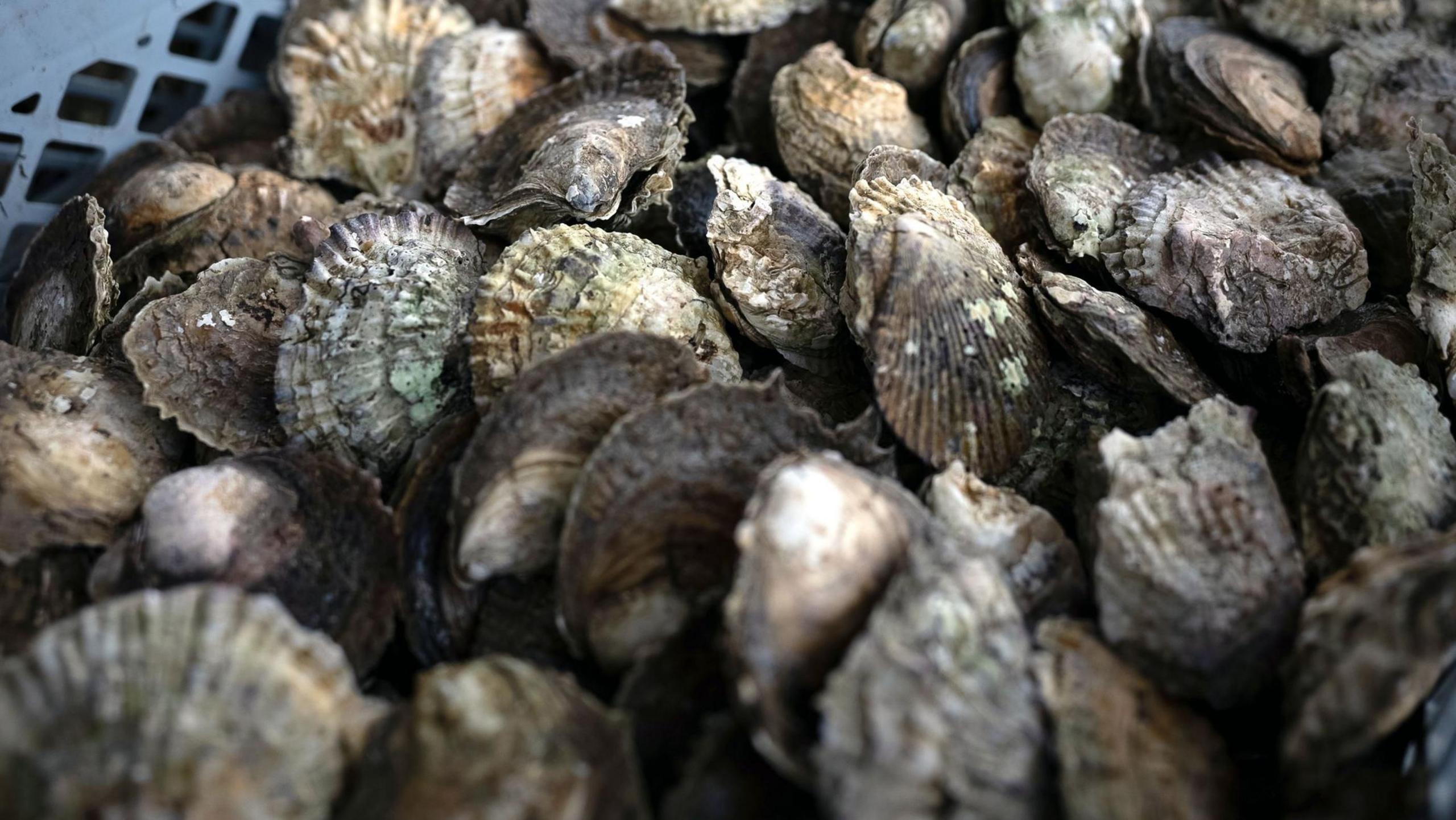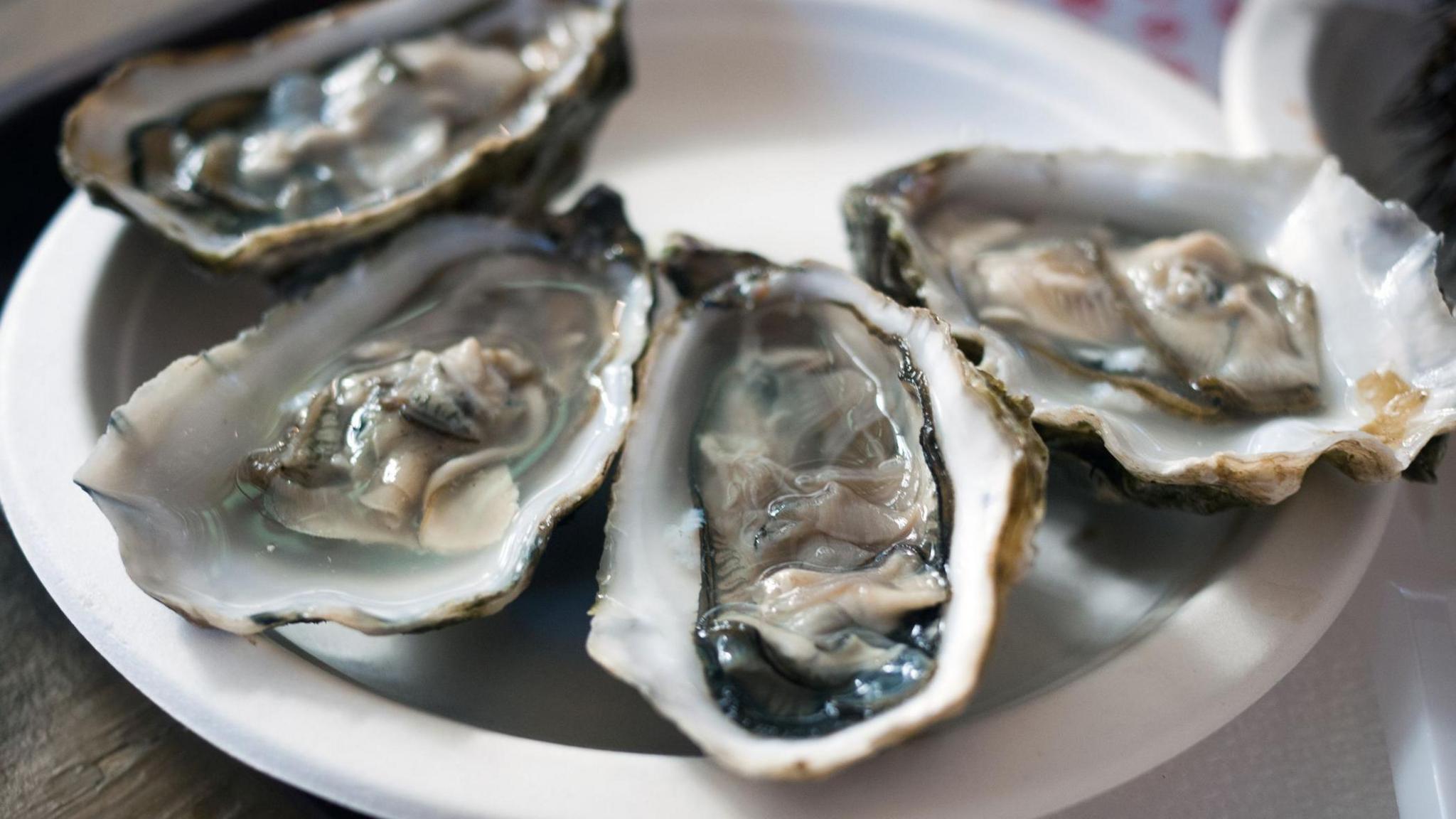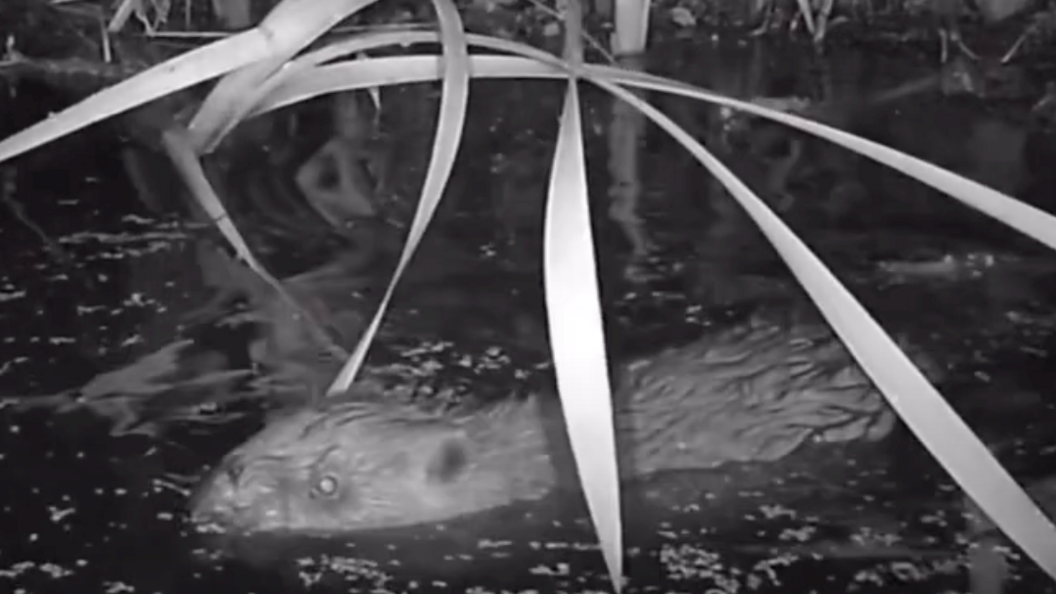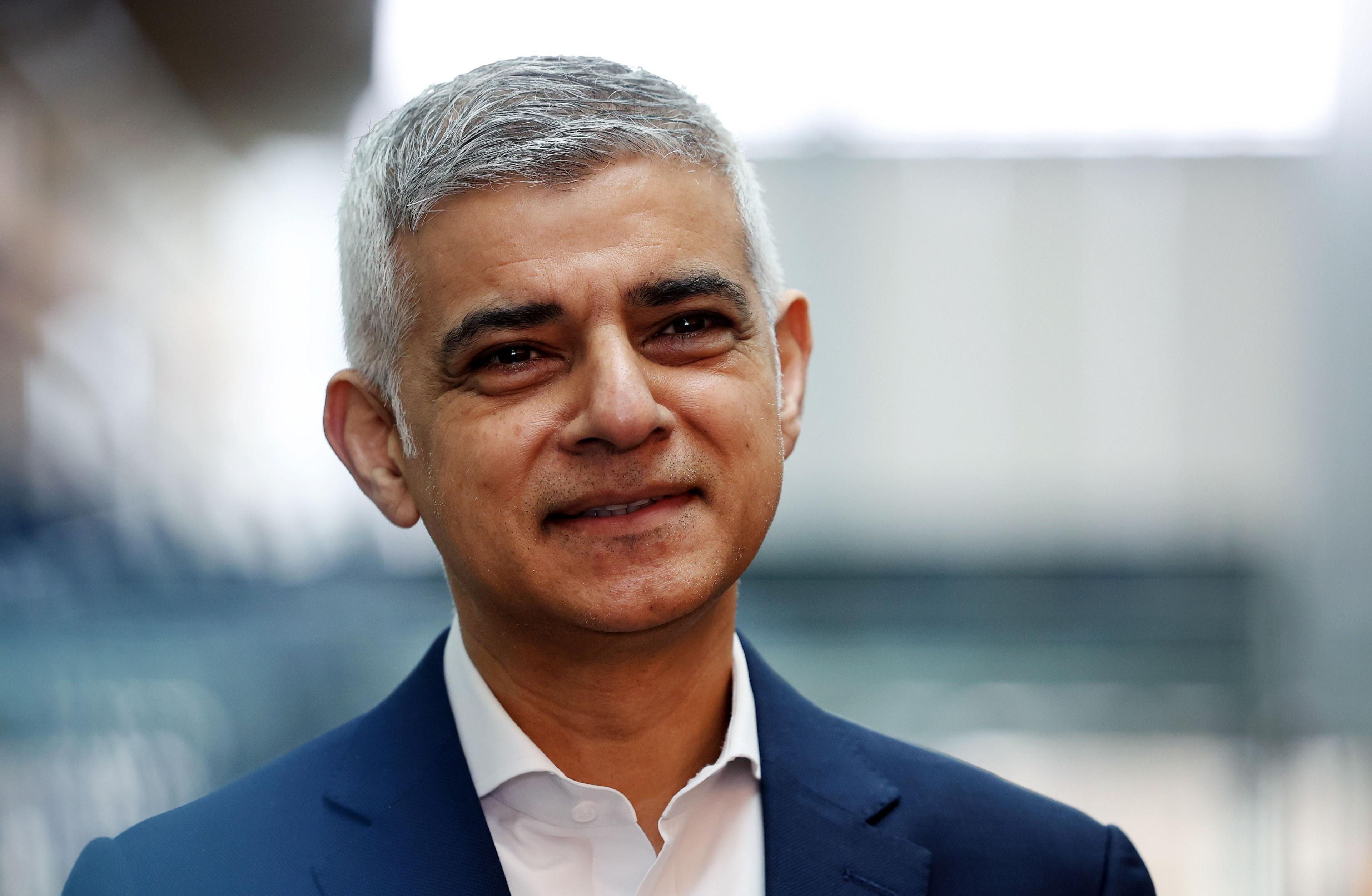Oysters on the menu in mayor’s river clean-up

Oysters are helping to clean the river in New York City
- Published
Oysters may return to the Thames as part of a 10-year plan to clean up the capital's rivers.
London Mayor Sadiq Khan said he had taken inspiration from a similar project he visited on his current trip to New York.
That scheme, to return one billion oysters to the Hudson river, started in 2014.
Oysters help to naturally filter the water and protect the city from flood damage.
Cheap and plentiful
Khan said the project "literally sees nature clean nature while increasing biodiversity in New York’s waterways”.
He said he hoped the return of species such as otters, water voles, eels, and mayflies to London will have a similar effect in protecting the city’s waterways.
He has now pledged to “explore and consider the role of oysters” in the eastern part of the Thames, despite telling the London Assembly in 2018 the river "is too heavily modified, and the tidal flow too strong, to allow for the establishment of oyster beds”.
In his response to a question at the time from London Assembly member Fiona Twycross, Khan said: “Although oysters were once a cheap and plentiful food source for Londoners, they were primarily sourced from oyster beds along the Thames estuary in Kent and Essex.
"These beds declined as the estuary became polluted.”

Oysters were once a staple food for poor Londoners
The mayor has now emphasised the oyster's potential role in cleaning the river rather than as a foodstuff.
He said: “We have done so much to clean up our air. Now we have a once-in-a-generation opportunity to restore our capital’s waterways as we continue to see a return of dozens of species, like here in New York.
"This will enable Londoners to connect with nature as we continue to build a greener London for everyone.”
Listen to the best of BBC Radio London on Sounds and follow BBC London on Facebook, external, X, external and Instagram, external. Send your story ideas to hello.bbclondon@bbc.co.uk, external
- Published23 September 2024

- Published13 August 2024

- Published19 April 2024
